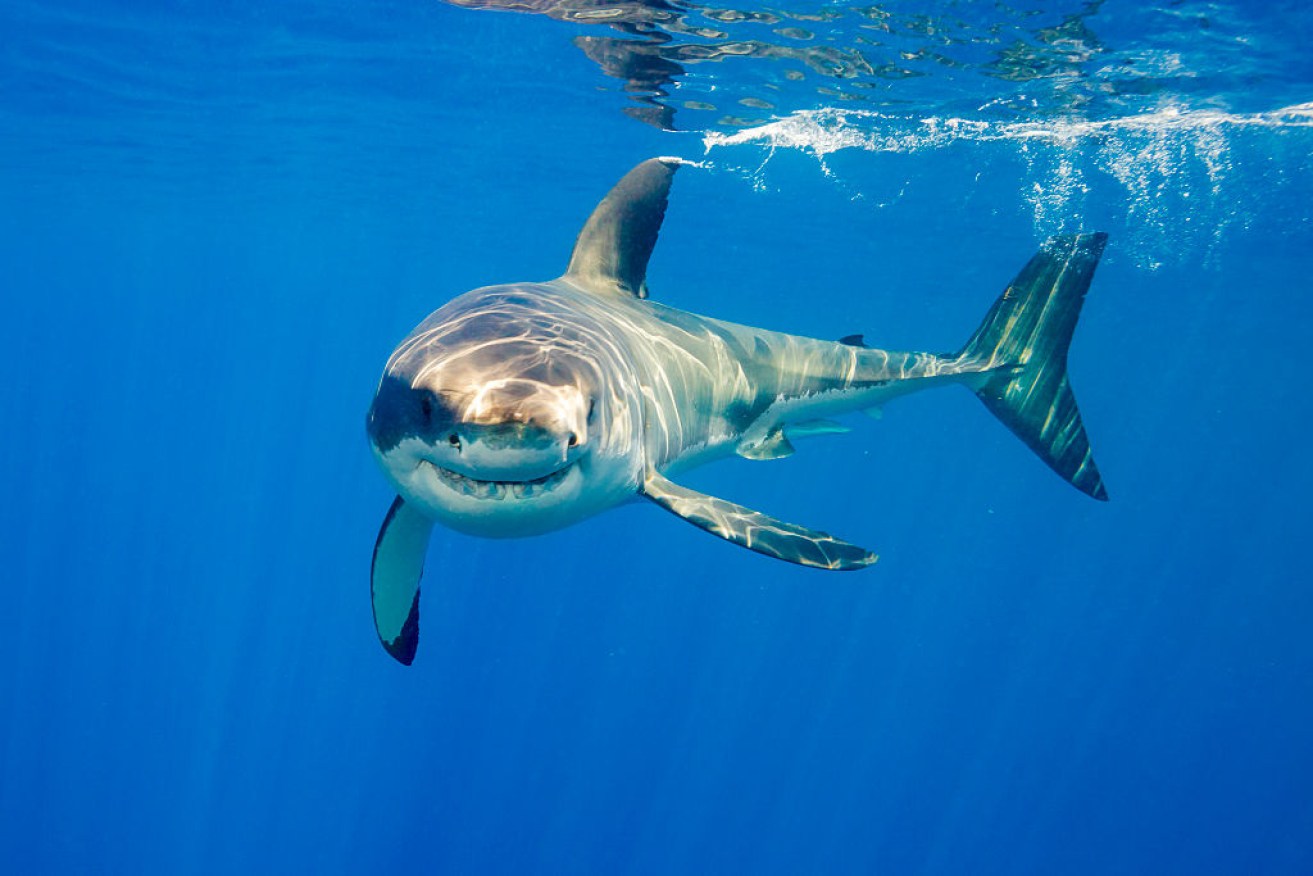Australia posts record number of shark attacks in 2015

It's believed Mr Gerring was attacked by a great white shark. Getty
The world record for the number of shark attacks was broken in 2015, with 98 verified unprovoked attacks recorded.
It was Australia’s worst year for attacks in seven years, with a surfer from Japan killed off Ballina in New South Wales and a scallop diver dying after an attack in waters off Maria Island in Tasmania.
Around the world, sharks killed only six people, including a snorkeler in Hawaii, and two people off the Indian Ocean island of Reunion.
• Air patrol spots real-life Jaws off Australian coast
• Dozens of shark sightings in 48 hours in NSW
• Huge white pointer attacks fishermen on boat
George Burgess is the current curator of the International Shark Attack File, a database which began in 1958 to track, investigate, classify and record shark attacks.
He said despite the record number of attacks, the number of deaths remained average.

There were 18 unprovoked shark attacks in Australia in 2015. Photo: Barcroft/Getty
“The year 2015 was a banner year if you like shark attacks but not such a good one if you don’t,” he said.
“But we need to make sure we understand that those 98 attacks resulted in only six deaths, which is precisely the average number of deaths we’ve had per year over the last decade.
“So while there were more lesser bites, the more serious ones of course resulting in fatalities were at the average that we’ve seen for the last decade.”
The report defined “unprovoked attacks” as incidents where an attack on a live human occurred in the shark’s natural habitat with no human provocation.
“Provoked attacks” usually occur when a human initiates physical contact with a shark – for example, a diver bitten after grabbing a shark or an attack on a spearfisher or someone feeding sharks.
In Australia, there were 18 unprovoked attacks last year – the most since 2009 when there were 22.
Florida was the hotspot for attacks, ahead of any country, with 30.6 per cent occurring in that state alone.
About half of the victims were surfers.
The report found that less affected recreational user groups included swimmers and waders (42 per cent) and snorkelers (9 per cent).
It also noted that there were no attacks on scuba divers in 2015.
More people means more attacks
“2015 showed a high number of attacks … we’re all seeing the consequence of global climate change, which means water temperatures are warming,” Mr Burgess said.
The majority of sharks, with the exception of the white pointer, prefer warmer waters.
Mr Burgess said as waters had become warmer, sharks had begun to move south.
“So in Australia that means that the ranges of some of these tropical or near-tropical sharks are willing to be expanding southwards into the higher latitudes and also it changes the seasonalities,” he said.
He also attributed the rise in attacks to a greater number of people in the water.
“Numerically we can expect to see an increase in the number of shark attacks virtually every year because there’s more humans, and the same thing would go for those other causes of injuries to humans,” Mr Burgess said.
“But that doesn’t mean the rate is going up.
“In fact, because we’re putting so many people in the water, our chances as an individual of being attacked or stung in the case of jellyfishes probably are lower than they’ve ever been, simply because there’s a divisor of so many humans in the water.”
-with Yasmin Parry, ABC








